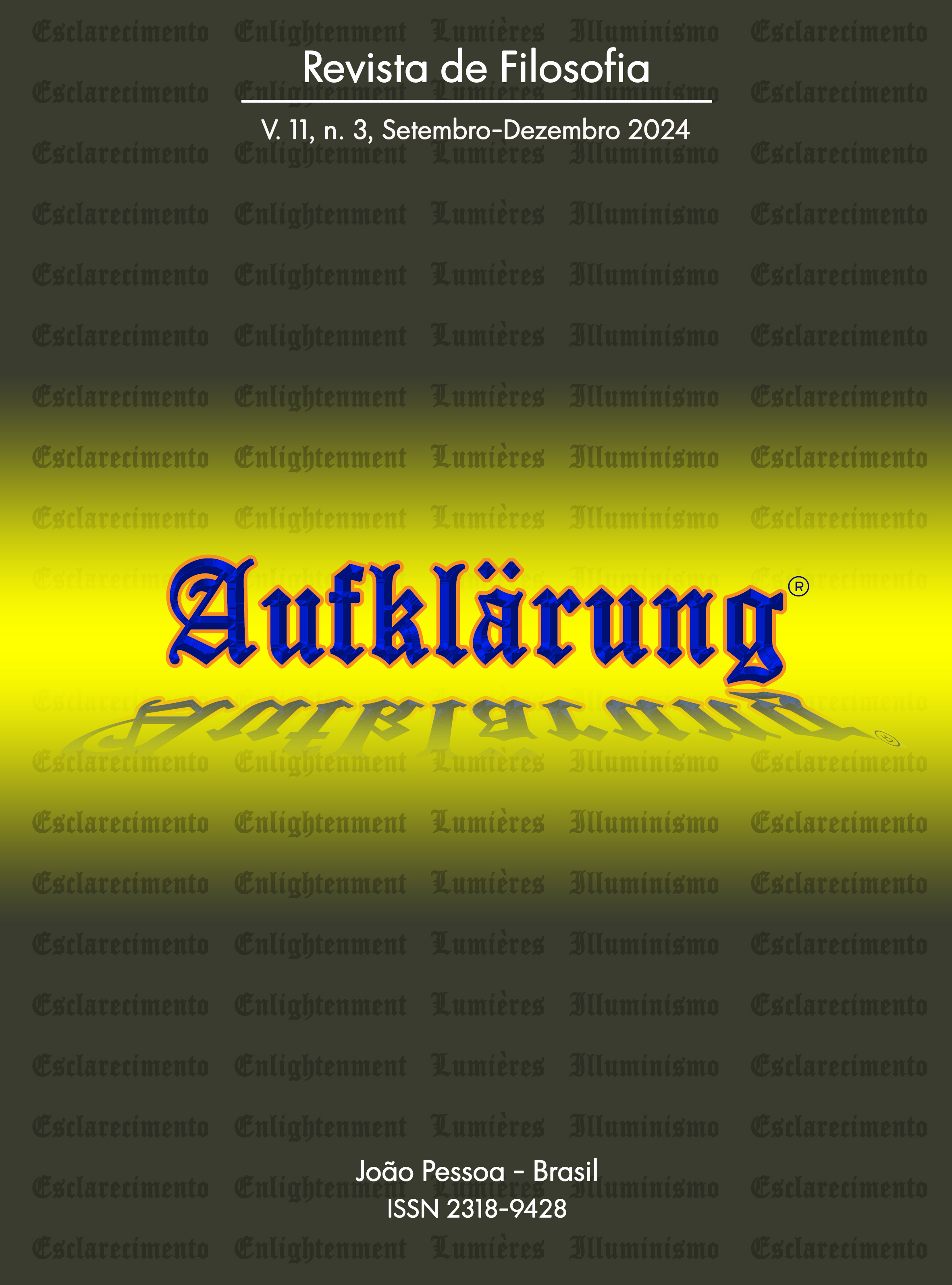Phan Boi Chau's patriotic thought and revolutionary activities in the early twentieth century and the significance in Vietnam today
DOI:
https://doi.org/10.18012/arf.v11i3.72590Palavras-chave:
Capitalism, national revolution, patriotism, Phan Boi Chau, socialism, VietnamResumo
Phan Boi Chau's thoughts are a valuable historical heritage and a practical source of inspiration, contributing to building a civilized, modern and unique Vietnam in the future. In building a strong and developed country in Vietnam, studying Phan Boi Chau's thoughts provides a comprehensive perspective on economic, political, and social issues, thereby finding appropriate solutions to face modern challenges in the context of globalization and ensuring sustainable and harmonious development. This study therefore examines the patriotic thought and revolutionary activities of Phan Boi Chau (1867–1940), a prominent Vietnamese thinker and activist in the early 20th century. Employing materialist dialectical, analytical-synthetic, and historical methods, the research investigates Phan Boi Chau's role in inspiring the Vietnamese struggle against French colonialism and his ideological evolution from Confucianism to democratic and socialist principles. The findings reveal Phan Boi Chau's leadership in movements such as the Duy Tan Hoi, Dong Du, and Vietnam Quang Phuc Hoi, highlighting his strategic emphasis on education, enlightenment, and national revival. Despite the limitations of his path to national salvation, Phan Boi Chau's ideas and efforts created the foundation for later revolutionary movements. Phan Boi Chau's legacy inspires patriotism, resilience, and intellectual development in Vietnam's modern development trajectory.
Downloads
Referências
Akagawa, N. (2014). Heritage conservation and Japan's cultural diplomacy: Heritage, national identity, and national interest. Routledge.
Boudarel, G. (1969). Memoirs of Phan Boi Chau. Paris: François Maspero.
Boudarel, G. (1997). Phan Boi Chau and Vietnamese society in his era. Hanoi: National Political Publishing House.
Chuong, T. (1990). The complete works of Phan Boi Chau (10 volumes). Hanoi: Social Sciences Publishing House.
Đinh, X. L., Ton, Q. P., & Lưu, T. T. (1981). Phan Boi Chau: The man and his revolutionary career. Hanoi: Institute of History.
Duiker, W. J. (1976). The rise of nationalism in Vietnam, 1900–1941. Cornell University Press.
Hoang, D. C. (2000). The revolutionary thought of Phan Boi Chau. Beijing: People's Publishing House.
Hoai, T. (1958). Phan Boi Chau and a historical period of resistance against the French. Hanoi: Literature Publishing House.
Institute of History. (1981). Phan Boi Chau and a historical period of Vietnam. Hanoi: Social Sciences Publishing House.
Institute of History. (1981). Phan Bội Châu: The man and his revolutionary career. Hanoi: Social Sciences Publishing House.
Le, T. N. (2020). The transformation of Phan Boi Chau's revolutionary thought for the Vietnamese revolution. Journal of Social Sciences and Humanities, 6(4), 45–60.
Long, C. X., Hoang, N. H. (2024). Phan Boi Chau's patriotic thought. Kalagatos, 21(2), eK24051-eK24051.
Marr, D. G. (1981). Vietnamese tradition on trial, 1920–1945. University of California Press.
Nguyen, A. Q., & Trịnh, T. K. C. (2016). Humanistic values in Phan Boi Chau's thought. Journal of Social Sciences.
Nguyen, V. H. (2000). Philosophical and political thought of Phan Boi Chau. Hanoi: National Political Publishing House.
Shiraishi, M. (2000). The Vietnamese nationalist movement and its relationship with Japan and Asia: Phan Boi Chau's thoughts on revolution and the world. Tokyo: University of Tokyo Press.
Ton, Q. P. (1949). Phan Boi Chau: Biography and literary works. Hanoi: Literature Association Publishing House.
Tran, V. G. (1996). The development of thought in Vietnam from the 19th century to the August Revolution. Hanoi: National Political Publishing House.
Tu, T. P. (2000). Phan Boi Chau and the influence of Japan on the Vietnamese revolutionary movement. Tokyo: Kyoto University Press.
Arquivos adicionais
Publicado
Como Citar
Edição
Seção
Licença

Este trabalho está licenciado sob uma licença Creative Commons Attribution 4.0 International License.
Política de Direito Autoral para os itens publicados pela Revista:
1.Esta revista é regida por uma Licença da Creative Commons aplicada a revistas eletrônicas. Esta licença pode ser lida no link a seguir: Creative Commons Attribution 4.0 International (CC BY 4.0).
2.Consonante a essa politica, a revista declara que os autores são os detentores do copyright de seus artigos sem restrição, e podem depositar o pós-print de seus artigos em qualquer repositório ou site.
Política de Direito de Uso dos Metadados para informações contidas nos itens do repositório
1. Qualquer pessoa e/ou empresa pode acessar os metadados dos itens publicados gratuitamente e a qulquer tempo.
2.Os metadados podem ser usados sem licença prévia em qualquer meio, mesmo comercialmente, desde que seja oferecido um link para o OAI Identifier ou para o artigo que ele desceve, sob os termos da licença CC BY aplicada à revista.
Os autores que têm seus trabalhos publicados concordam que com todas as declarações e normas da Revista e assumem inteira responsabilidade pelas informações prestadas e ideias veiculadas em seus artigos, em conformidade com a Política de Boas Práticas da Revista.






































